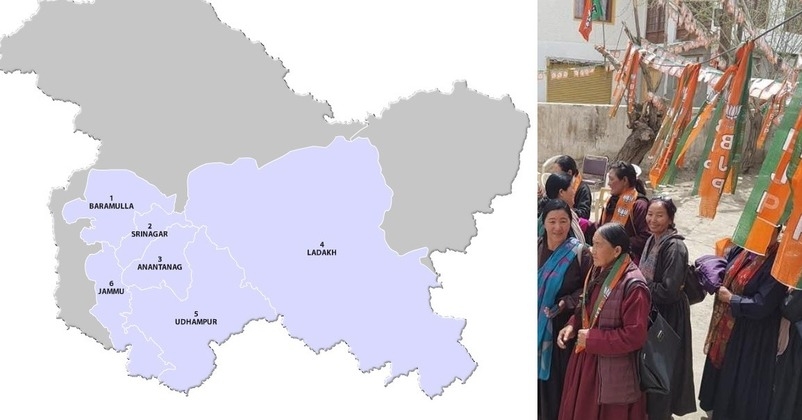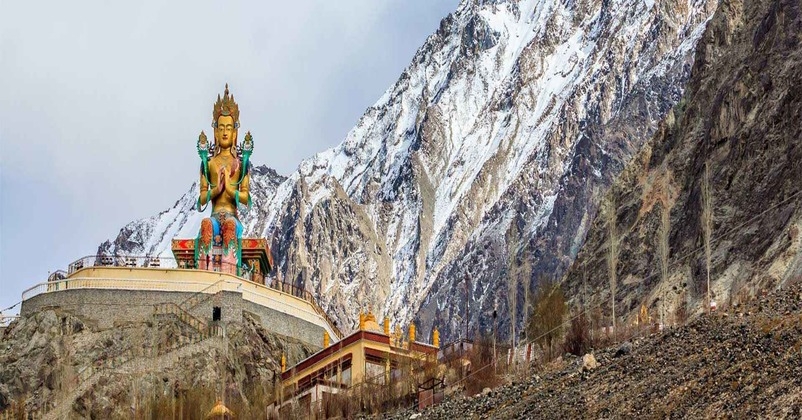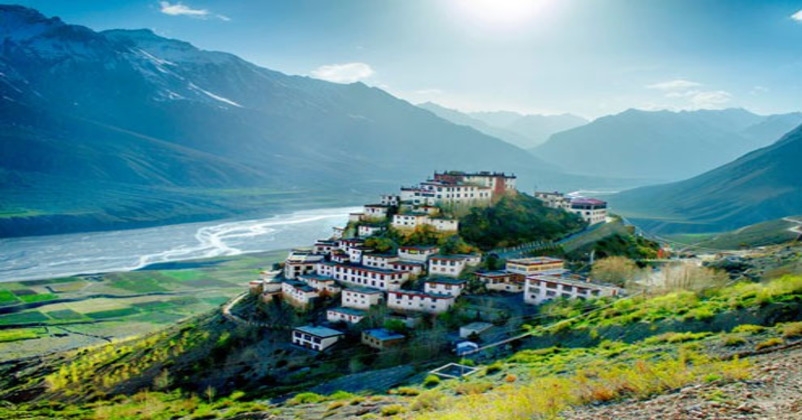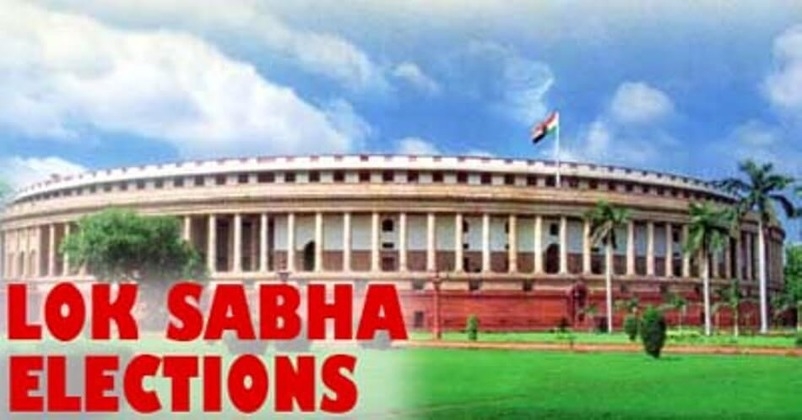Ladakh Lok Sabha constituency is quite different from the rest of Jammu and Kashmir (J&K). Though Lok Sabha constituencies in Jammu as well as Kashmir vote for regional and national level parties but the Ladakh constituency is different in this regard. Ladakh ("land of high passes") is a region in the Indian state of Jammu and Kashmir that currently extends from the Siachen Glacier in the Karakoram range to the Great Himalayas. It is inhabited by people of Indo-Aryan and Tibetan descent. This region is sparsely populated and its culture and history are different from both Jammu and Kashmir.
About Ladakh
Geographically, Ladakh is spread in an area of approximately 59,000 sq.km., which is much larger than the combined area of Jammu and Kashmir. The largest town in Ladakh is Leh, followed by Kargil. The principal language of Ladakh is Ladakhi, a Tibetan language. But educated Ladakhis also understand and speak Hindi, Urdu and often English. Ladakh is divided into two districts, Leh and Kargil. While Leh is Buddhist-dominated, Shia Muslims are the largest population in Kargil. 66.39% population in Leh follow the Buddhist religion whereas Kargil has the majority (76.87%) of Muslims, mostly Shia.
Ladakh assertion for separate identities from Kashmir
Post-Independence, awareness levels among the Buddhists had gone up and when the Kashmir was engulfed in terrorism during the 1990s, Ladakh was fighting for a demand that was completely different from the Kashmir region. In 1989, they launched an agitation against Kashmiri Muslims which went on for two years. Though Ladakh was pressing for certain demands yet it was not heard until recently. Recently, a separate division was created for Ladakh, which was earlier a part of Kashmir. Now, the Ladakh division will have a full administrative and revenue division at par with the other two divisions. It will have its own Divisional Commissioner and Inspector General of Police. The division will include Leh and Kargil districts with its headquarters at Leh. This decision was long due as the Ladakhi people have been requesting for a separate division for quite a while now. Reports also add that the people suggested that since Ladakh has unique topographic conditions, it should be given special status.
Earlier trend in Parliamentary election
The election process has remained different on Ladakh seat and contrary to the dominance of local or national party in Lok Sabha in Kashmir and Jammu, Ladakh has sent independent candidates, in the last two elections, before 2014, to the parliament. In 2004 and 2009, Thupstan Chhewang and Hassan Khan were elected respectively by the people of this region. Both were independent candidates. In 2014, Thupstan Chhewang contested the Lok Sabha election on BJP ticket and got elected.
Ladakh going to poll on May 6
The authorities have set up 559 polling stations across four assembly segments for over 1.74 lakh electorate in the Ladakh Lok Sabha constituency for the smooth conduct of the polls in the fifth phase on May 6. The Ladakh Lok Sabha constituency, spread over districts of Leh and Kargil, has four assembly segments -- Kargil, Zanskar, Leh, and Nubra. The constituency has an electoral strength of 1,74,618 voters which included 86,752 males and 85,064 females, 2,799 service voters and three transgenders. Gaik polling station (Leh segment) and Washi polling station (Nubra segment) each have only seven registered voters eligible to cast their votes. The highest number of voters -- 1,301 -- are eligible to exercise their franchise at Shynam polling station in Leh.
This time there are only four candidates in the fray for Ladakh Lok Sabha seat. Rigzin Spalbar is contesting on the Congress ticket and Jamyang Tsering Namgyal is the BJP candidate. Asgar Ali Karbalai left the Congress and he has filed the nomination as an independent candidate. Another independent candidate Sajjad Hussain has the backing of the influential clergy in Kargil. The election in this region will be interesting, as it is to be seen whether the national level party is able to send its candidate to Lok Sabha or the independent wins.




